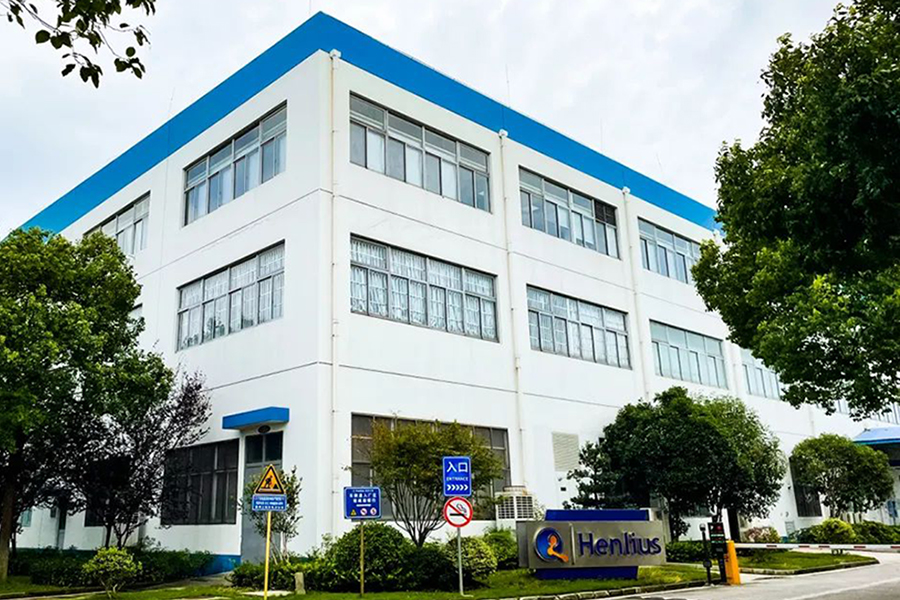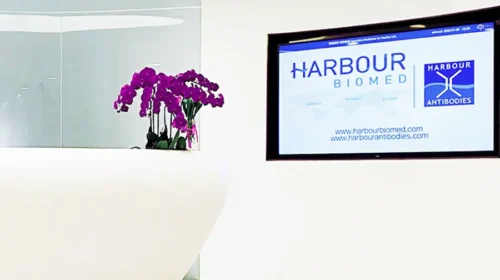After a failed Fosun buyout, what’s next for drug maker Henlius Biotech?

Hong Kong shareholders have foiled plans by Fosun Pharma to take its biologics subsidiary off the stock market at half the IPO price
Key Takeaways:
- Fosun Pharma has pledged to continue to support Henlius Biotech over the long term, after abandoning a bid to buy out the firm’s minority shareholders
- Unlike its loss-making peers, Henlius Biotech has logged net profits from sales of innovative cancer drugs
By Molly Wen
It made sense on paper. A Chinese drugs conglomerate was planning to buy out a minority stake in its thriving biopharma unit, taking advantage of depressed stock prices, to bring the business under its full control and bank the future profits.
But Fosun Pharmaceutical (600196.SH) pitched the offer too low to secure sufficient support from holders of the subsidiary’s Hong Kong shares.
On January 22 the company announced that its buyout proposal for Shanghai Henlius Biotech Inc. (2696.HK) had failed to gain the necessary backing, meaning that plans to absorb the firm into the group had been dropped, despite six months of preparations for the move. Henlius Biotech will retain its listing, with Fosun Pharma as the majority stakeholder.
If the plan had gone ahead, it would have triggered the first stock market exit by a company that was admitted under Hong Kong’s relaxed eligibility rules for biotech firms.
Where did the idea go wrong? The buyout proposal was drawn up last year against a backdrop of persistently weak share prices. The Hong Kong market had been in the doldrums for a long time, along with the biopharmaceutical sector. The Hang Seng Healthcare Index has fallen for four consecutive years, leaving many innovative pharmaceutical companies with relatively low valuations.
The writing was on the wall before the plan was officially pulled. Shares in Henlius Biotech had dropped for eight straight trading days before the January announcement, losing 27.5% of their value, as investors bailed out in advance.
The buyout was thwarted by holders of the company’s Hong Kong shares. Takeover rules required the proposal to be approved by a general shareholders’ meeting as well as by at least 75% of H-share holders, with fewer than 10% voting against the move. Henlius Biotech had 543 million shares outstanding as of June last year, of which 163 million were Hong Kong shares. More than two-thirds of the biotech’s shareholders approved the buyout offer, but 19.25% of those with H shares voted against it, derailing the plan.
Fosun Pharma said it regretted the shareholders’ decision but respected their views, and pledged to continue to support Henlius Biotech in its long-term development. Fosun Pharma retains a controlling stake of 59.56% in Henlius Biotech, which develops drugs for various types of cancer and autoimmune conditions.
The proposal unveiled in June last year offered independent shareholders HK$24.60 ($3.15) per share in a transaction worth up to HK$5.4 billion, with the aim of fully absorbing the biotech into the Fosun group. The offer was priced at a premium of about 52% above the average closing price of HK$16.18 over the 30 trading days before the suspension of share trading. However, the deal was not attractive enough for many investors, pitched at just half the IPO subscription price of HK$49.60 back in 2019.
Moreover, the biotech’s earnings performance compares favorably with other companies that took the special listing route to the Hong Kong market. Unlike its peers, Henlius Biotech has actually turned in net profits on the back of drug sales, although weakness on the wider equity market has still weighed on its share price.
The company did not convert its domestic shares into H shares when it went public, limiting trading volume and market liquidity on the Hong Kong market. Therefore, the share price could not fully reflect the company’s financial performance.
The day after the buyout was officially shelved, shares in Henlius Biotech fell more than 11% at the open and finished the day 7.95% down at HK$15.74. That was 36.2% below the proposed privatization price offered six months ago. However, the share rose slightly in the following two sessions as investors weighed up the prospects from here.
On the one hand, Henlius Biotech may get less support from Fosun Pharma if it keeps developing independently. But conversely, the Fosun drugs conglomerate may have more incentives to invest in Henlius Biotech to boost the firm’s market capitalization.
Passing the profit milestone
Henlius Biotech has achieved sustained profitability and steady growth, driven by strengths in research and the knowhow to bring new drugs to market. It has launched six commercial products for a range of diseases, including the drugs trastuzumab, serplulimab and rituximab.
Annual revenues jumped nearly 68% in 2023 to 5.40 billion yuan ($741 million), pushing the biopharma company over the breakeven line into profit for the first time.
In the first half of 2024, revenues rose 9.8% to 2.75 billion yuan from the year-earlier period, delivering a profit of 383 million yuan, a year-on-year jump of 61%. During the period, the targeted cancer drug trastuzumab made solid headway in the Chinese market, with sales rising about 13.5% to 1.41 billion yuan.
Overseas sales of the drug rose 79% to 68 million yuan. Trastuzumab got the green light for U.S. marketing in April last year, making it the first Chinese-made biosimilar antibody to be approved in the United States, Europe and China. A shipment was also sent to Saudi Arabia in June last year as the firm looks to penetrate the Middle East market with Chinese-made pharmaceuticals.
Sales of another core cancer drug, the monoclonal antibody serplulimab, brought in nearly 678 million yuan, a year-on-year revenue rise of just under 22%. The drug was the world’s first such PD-1 antibody to be approved for first-line treatment of small-cell lung cancer, the company said. The product has been cleared for sale in China, Indonesia, Cambodia and Thailand.
Investors will be looking for continued profits, powered by growth of overseas sales, hoping that the company’s continued listing will raise its international profile and expand its financing channels.
Henlius Biotech trades at a forward price-to-earnings (P/E) ratio of about 15 times, compared with 24 times for Akeso Inc. (9926.HK), a similarly listed biotech that is also profitable. The differential suggests that Henlius Biotech still has room to increase its market value. Investors should be keeping a close eye on the company, looking for any further breakthroughs with the help of Fosun Pharma.
To subscribe to Bamboo Works free weekly newsletter, click here






